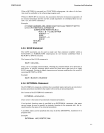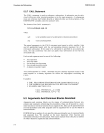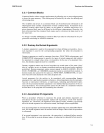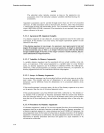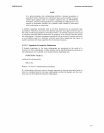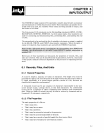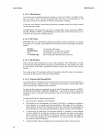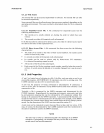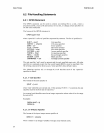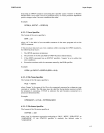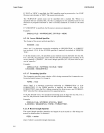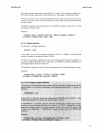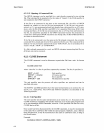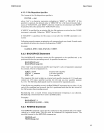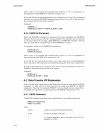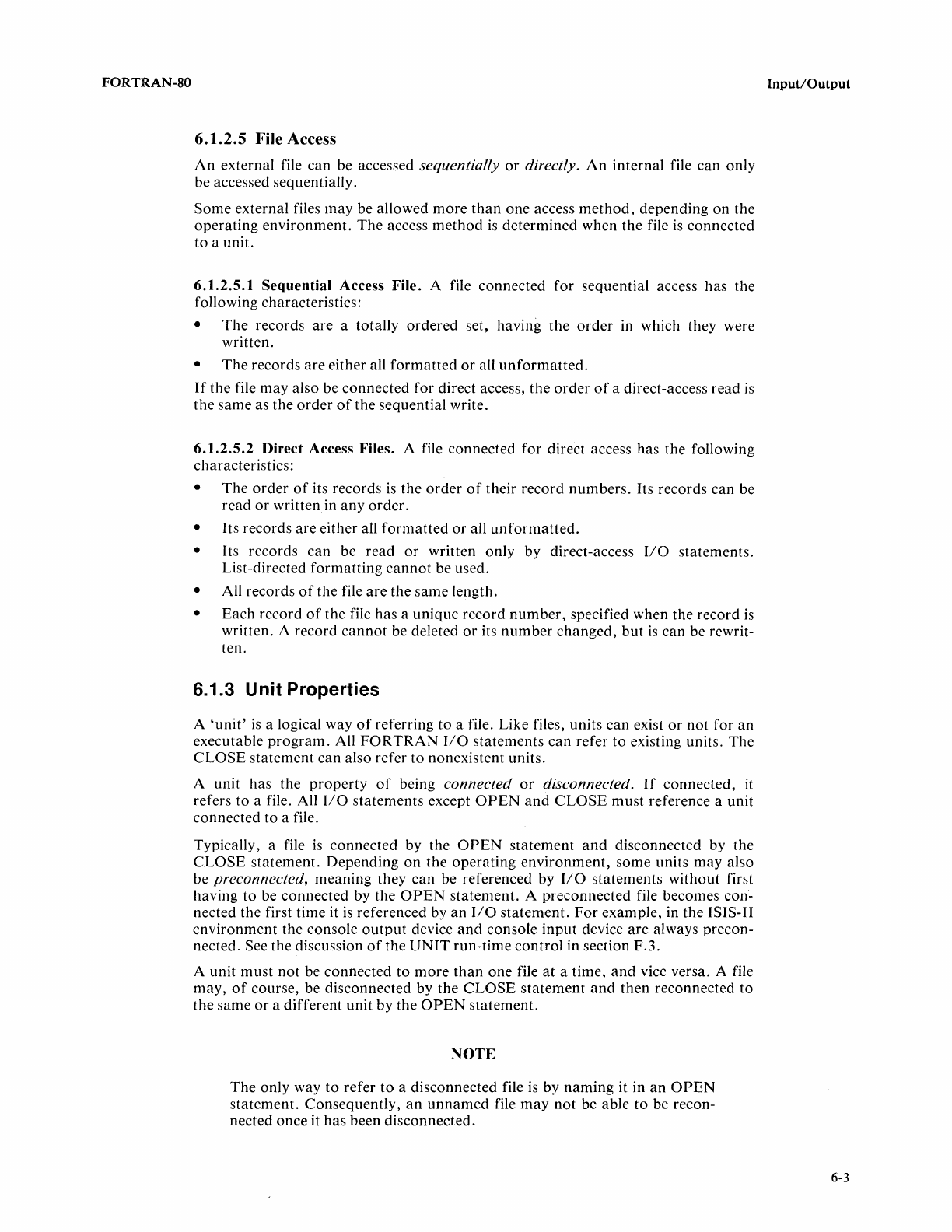
FORTRAN-SO
6.1.2.5 File Access
An
external file can be accessed sequentially
or
directly.
An
internal file can only
be accessed sequentially.
Some external files
may
be allowed
more
than
one access
method,
depending on the
operating
environment.
The
access
method
is
determined when the file
is
connected
to
a unit.
6.1.2.5.1
Sequential Access File. A file connected for sequential access has the
following characteristics:
•
The
records are a totally ordered set, having the
order
in which they were
written.
•
The
records
are
either all
formatted
or
all
unformatted.
If
the file
may
also be connected for direct access, the
order
of
a direct-access read
is
the same as the
order
of
the sequential write.
6.1.2.5.2
Direct Access Files. A file connected for direct access has the following
characteristics:
• The
order
of
its records
is
the
order
of
their record numbers. Its records can be
read
or
written in
any
order.
• Its records are either all
formatted
or
all
unformatted.
• Its records can be read
or
written only by direct-access
110
statements.
List-directed
formatting
cannot
be used.
• All records
of
the file
are
the same length.
• Each record
of
the file has a unique record
number,
specified when the record
is
written. A record
cannot
be deleted
or
its
number
changed,
but
is
can be rewrit-
ten.
6.1.3 U nit Properties
A
'unit'
is
a logical way
of
referring
to
a file. Like files, units can exist
or
not for
an
executable
program.
All
FORTRAN
110
statements can refer to existing units. The
CLOSE
statement
can
also refer to nonexistent units.
A unit has the
property
of
being connected
or
disconnected.
If
connected,
it
refers
to
a file. All
110
statements except
OPEN
and
CLOSE
must
reference a unit
connected to a file.
Typically, a file
is
connected by the
OPEN
statement
and
disconnected by the
CLOSE
statement. Depending
on
the
operating
environment, some units may also
be
preconnected, meaning they
can
be referenced by
110
statements without first
having to be connected by the
OPEN
statement. A preconnected file becomes con-
nected the first time it
is
referenced by
an
110
statement.
For
example, in the ISIS-II
environment the console
output
device
and
console
input
device
are
always precon-
nected. See the discussion
of
the
UNIT
run-time
control
in section F.3.
A unit
must
not be connected to
more
than
one file
at
a time,
and
vice versa. A file
may,
of
course, be disconnected by the
CLOSE
statement
and
then reconnected
to
the same
or
a different unit by the
OPEN
statement.
NOTE
The
only way
to
refer
to
a disconnected file
is
by naming it in
an
OPEN
statement. Consequently,
an
unnamed
file
may
not
be able
to
be recon-
nected once
it
has been disconnected.
Input/Output
6-3



